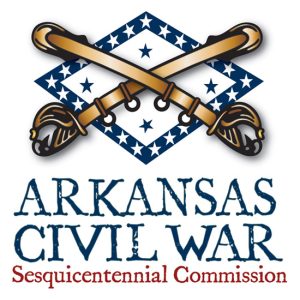calsfoundation@cals.org
Skirmish at Cross Hollow
| Location: | Benton County |
| Campaign: | None |
| Date: | June 23, 1864 |
| Principal Commanders: | Captain James L. Powell (US); Unknown (CS) |
| Forces Engaged: | Undetermined number of Second Arkansas Cavalry (US); Unknown (CS) |
| Estimated Casualties: | Unknown (US); 1 killed, 2–3 wounded, 1 captured (CS) |
| Result: | Union victory |
Federal forces in northwestern Arkansas and southwestern Missouri used cavalry patrols to prevent Confederate regulars and guerrillas from organizing in the area. This skirmish was part of an effort by Union forces in Missouri to disrupt small bands of the enemy gathering near Cross Hollow.
On June 20, 1864, Captain James Powell of the Second Arkansas Cavalry (US) received orders to embark on a scouting mission with an unspecified number of men. Moving southward from Cassville, Missouri, Powell and his men first encountered enemy forces near Sugar Creek but did not attack. The Federals continued to Cross Hollow where they turned southward to Fayetteville (Washington County) before moving to Bentonville (Benton County).
On the third day of the scouting mission, Powell began to search the surrounding countryside for Charles Nail, a deserter from Powell’s company. The Union captain found Nail’s wife, who confirmed that Nail was trying to link up with a band of Confederates under the command of a Major Brown. Continuing to search, the Federals surprised a small group of Confederates and killed one while the remainder escaped. Shortly after this engagement, the Federals encountered another Confederate, whom they captured.
The Federals continued to move through the countryside, and near Walnut Springs, the prisoner informed Powell that Major Brown and his men were in the area preparing to attack a Union wagon train. Locating the Confederates, Powell led his men in an attack that wounded two or three of the enemy and a similar number of horses. The Confederates fled and the Union troops were able to capture two horses, one gun, Federal-issued overcoats and blankets, and provisions. With the end of the fight, Powell and his men joined the nearby wagon train, camping with it for the night before returning to Cassville on the evening of June 24.
The efforts of the Federal cavalry in the area made any attack by Confederate forces unlikely. By this point in the war, large-scale Confederate operations were not possible in this area of the state, and the fighting that did occur was mostly between small groups like those that took part in this action near Cross Hollow.
For additional information:
The War of the Rebellion: A Compilation of the Official Records of the Union and Confederate Armies. Series 1, Vol. 34, Part 1. Washington DC: Government Printing Office, 1889.
David Sesser
Henderson State University
 Civil War Timeline
Civil War Timeline Military
Military ACWSC Logo
ACWSC Logo 




Comments
No comments on this entry yet.